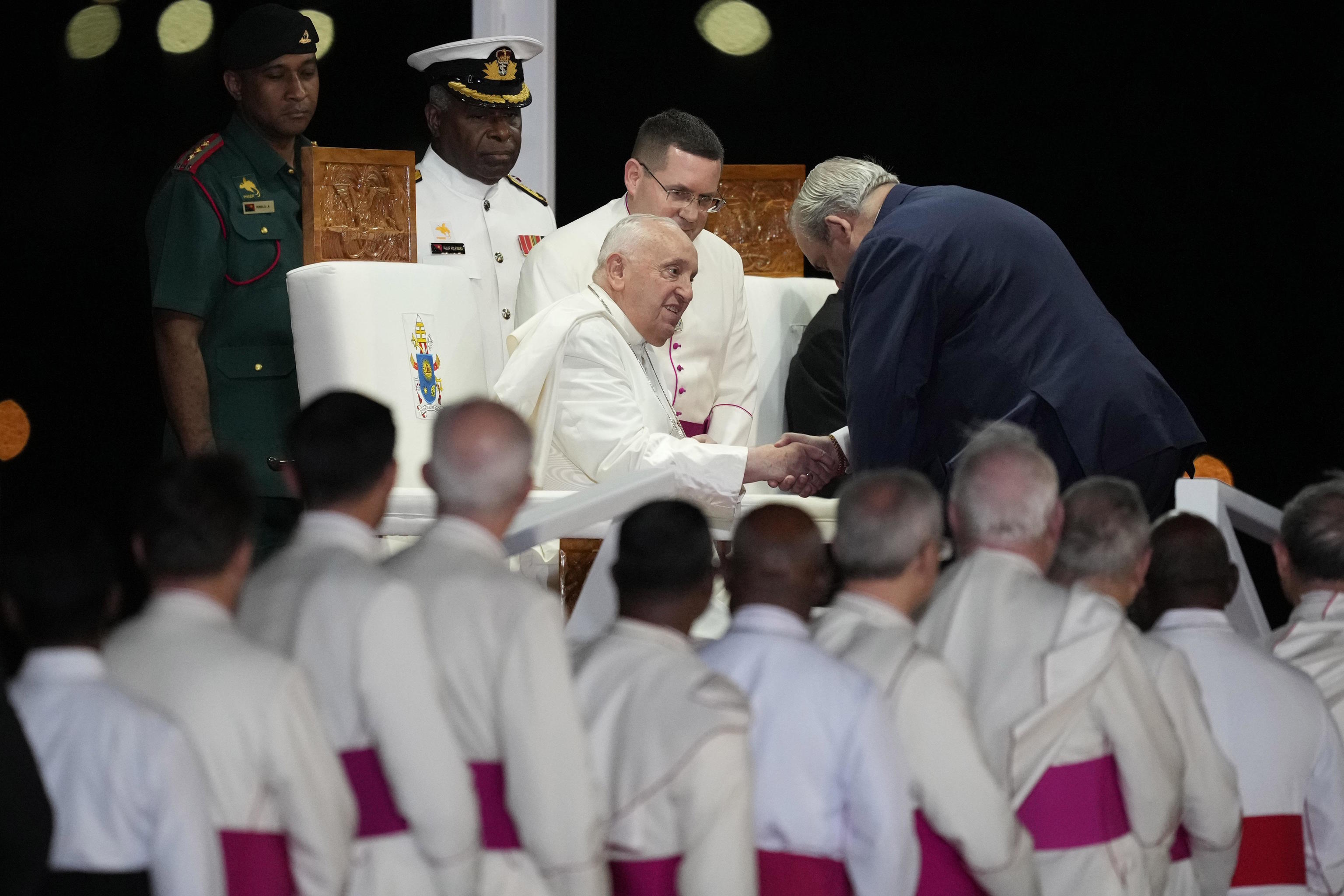In the bustling and polluted Jakarta lies Istiqlal Mosque, the largest in Southeast Asia, which is uniquely connected by an underground tunnel to the main Catholic cathedral of Indonesia. Dubbed as the "tunnel of friendship," measuring just over 28 meters, it was completed three years ago to symbolize religious harmony in the world's largest Muslim-majority country, where 87% of the population practices Islam.
This Thursday, Pope Francis, who landed in Jakarta this week for his first stop on a tour of Southeast Asia, the longest journey of his papacy, made a historic visit to the mosque, inaugurated in 1978 and designed by a Christian architect.
The Pope embarks on his longest journey: 32,800 kilometers across Southeast Asia on seven planes
At the Muslim temple, the Pontiff received a colorful welcome from the grand imam Nasaruddin Umar and representatives of the six officially recognized religions of Indonesia: Islam, Catholicism, Protestantism, Buddhism, Hinduism, and Confucianism.
"This mosque, like other places of worship in Indonesia, are spaces for dialogue, mutual respect, and harmonious coexistence among religions and different spiritual sensitivities," stated the Pope, who, alongside the imam, made a call for peace. "Humanity is facing a serious crisis caused by war, conflicts, and environmental destruction," he added. He also observed the underground passage connecting to the Cathedral of Our Lady of the Assumption. "The tunnel allows these two great places of worship not only to face each other but also to be connected. It is a symbol of Indonesia's commitment to tolerance and interreligious cooperation," he emphasized.
In addition to the heavy presence of security forces and local authorities, many of the Pope's followers gathered outside the temples. Catholics represent approximately 3% of the population, and Protestants 7%. With this visit, many Indonesian media outlets are promoting their pluralism and religious tolerance in their vast archipelago with 275 million inhabitants. However, some also recall the rise of Islamic religious extremism in recent years, which has challenged peaceful coexistence.
"The global phenomenon of dehumanization is characterized mainly by violence and widespread conflicts, often resulting in an alarming number of victims. It is particularly concerning that religion is often used as an instrument in this regard, causing suffering to many people, especially women, children, and the elderly," reads the joint statement signed by the representatives of the interreligious meeting present at the mosque.
The Pope's journey through Indonesia will conclude this Thursday with a meeting with the outgoing president Joko Widodo and a mass at the capital's largest stadium expected to be attended by 85,000 Catholics. The trip will continue to Papua New Guinea, East Timor, and Singapore. It is a 12-day "apostolic journey" marking the longest time the Pontiff has spent outside the Vatican. This has raised some concerns about the delicate health condition of the 87-year-old Catholic leader.
